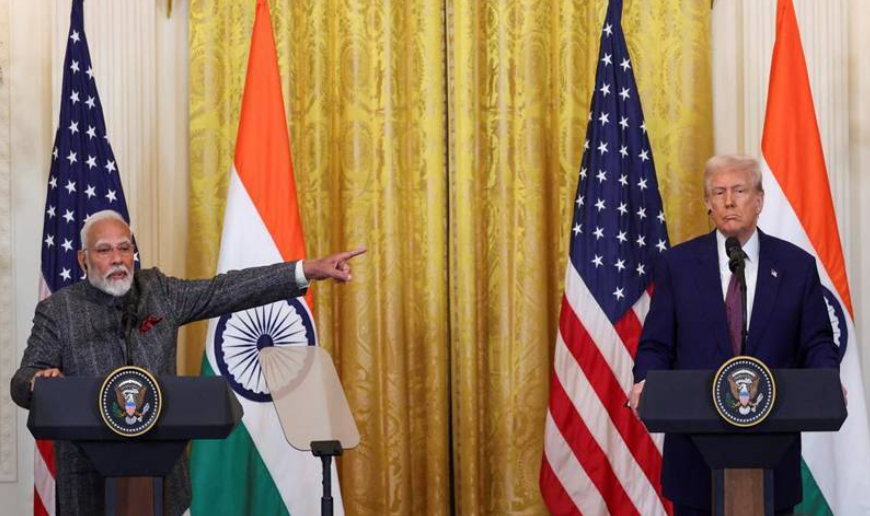Trump threatens India with steep tariffs over Russian oil purchases, claiming Modi assured him of a halt—a claim firmly denied by New Delhi.

News Desk
WASHINGTON: US president Donald Trump has threatened to impose hefty tariffs on India if it continues purchasing Russian oil, intensifying a dispute that highlights the tension between New Delhi’s energy security needs and Washington’s geopolitical agenda. Speaking to reporters aboard Air Force One, Trump claimed that Indian Prime Minister Narendra Modi had personally assured him that India would halt its purchases of Russian crude.
“Modi told me, ‘We will not buy Russian oil,’” Trump said. “But if India does buy it, they are going to pay a big tariff.” He stressed that roughly a third of India’s oil imports come from Russia and argued that these purchases were indirectly financing Moscow’s military campaign in Ukraine. Trump framed the issue as a matter of economic leverage, signaling a willingness to escalate US trade pressure if India did not comply.
The Indian government promptly denied the claim, calling it inaccurate. Randhir Jaiswal, a spokesperson for India’s Ministry of External Affairs, said officials had “no knowledge of such a discussion” taking place between Modi and Trump. He added that energy cooperation with the United States remained ongoing, emphasizing that India’s energy decisions were guided by national interest rather than external political pressure.
Trump’s threat comes amid existing tensions over US tariffs, which were raised earlier this year to as much as 50% on certain imports from India, including textiles and pharmaceuticals. Analysts said further escalation could complicate bilateral trade relations at a time when both countries have sought to deepen economic ties alongside strategic cooperation.
Russia has become India’s largest oil supplier in recent years, with New Delhi citing discounted prices as a key factor. Indian officials have repeatedly defended these purchases as essential to meeting the country’s growing energy demand, stressing that acquiring crude from Russia does not signal a shift in India’s foreign policy alignment.
The dispute underscores the broader challenges in balancing national energy needs with global diplomatic pressures. While Trump’s remarks drew immediate attention for their combative tone, Indian officials maintained that decisions on oil imports would continue to reflect strategic priorities rather than the expectations of external actors. As tensions simmer, the issue is likely to remain a sensitive topic in Washington-New Delhi relations, with potential economic and geopolitical ramifications for both sides.


